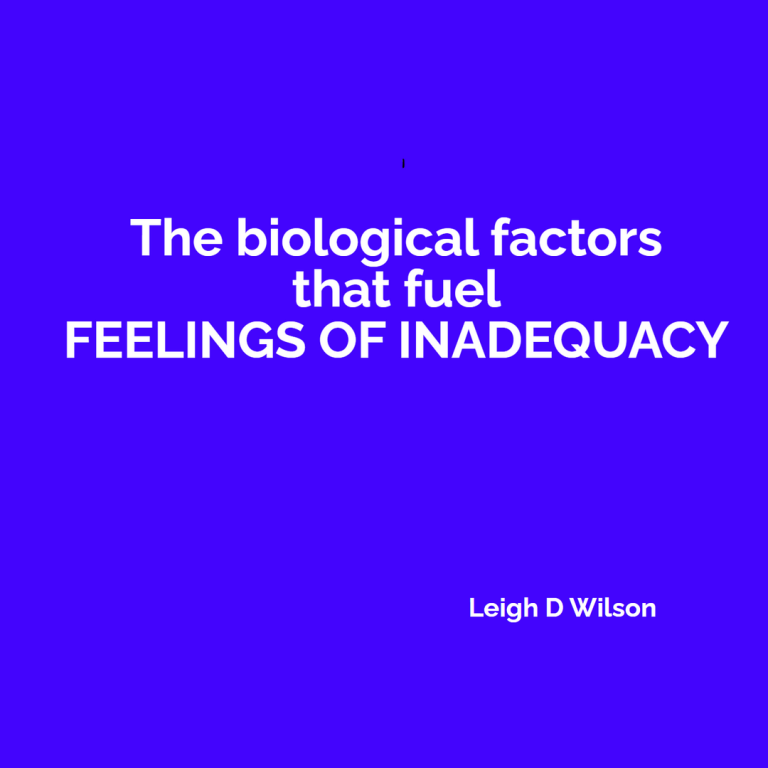You’ve probably experienced that nagging sensation of inadequacy at some point—feeling as if you’re not good enough, smart enough, or capable enough. While this can stem from a variety of external factors like societal expectations or past experiences, did you know that biological elements play a role too? Understanding these factors can empower you to tackle those feelings of inadequacy head-on.
The neurochemistry behind inadequacy
First on the list is dopamine, the neurotransmitter associated with pleasure, reward, and motivation. A shortage of dopamine can directly influence your mood and even lead to feelings of inadequacy. If your brain isn’t releasing enough of this feel-good chemical, accomplishing tasks can feel overwhelming, and your efforts may never seem ‘good enough.’
Hormonal fluctuations
Hormones like cortisol, often referred to as the ‘stress hormone,’ can also contribute to feelings of inadequacy. When you’re stressed, your body releases cortisol as part of its fight-or-flight response. While this mechanism is necessary for survival, chronic stress means chronic cortisol, which wreaks havoc on your mental state. High levels can result in anxiety, depression, and—you guessed it—feelings of inadequacy.
Gut-brain connection
Believe it or not, your gut health is closely related to your mental well-being. The gut produces about 90% of the body’s serotonin, another neurotransmitter crucial for mood regulation. An imbalance in your gut flora can thus influence your emotional state, adding to feelings of inadequacy.
Genetic predisposition
Genetics plays a role, too. Some of us are genetically predisposed to be more sensitive to stress and negative emotional states. That means your feelings of inadequacy could partly be hardwired, making it all the more essential to actively manage your mental health.
Taking control
Now that you’re armed with this knowledge, what can you do? For starters, exercise can significantly boost dopamine levels. Eating a balanced diet rich in nutrients like Omega-3 fatty acids can also help regulate neurotransmitters and even your gut health.
Addressing chronic stress is crucial. Techniques like mindfulness, deep-breathing exercises, or even professional guidance can provide you with the tools to manage cortisol levels.
And don’t underestimate the power of professional help. Sometimes, talking through these feelings can illuminate underlying issues that no amount of diet or exercise will fix. Therapists, coaches, and mentors can offer actionable insights into managing your specific biological factors.
In summary, feelings of inadequacy aren’t solely emotional or situational; they’re biological, too. Understanding this can be the first step towards effective management. Remember, it’s never too late to take control and rewrite your internal narrative—you’re more resilient than you think.
If you want some help letting go of any feelings of inadequacy, let’s have a chat. There is every possibility that I can help you quickly let them go, in only a session or two, freeing you from these issues.
#feelingstuck #selfdoubt #worry #stress #anxiety #selfconfidence #overwhelm #procrastination #burnout










